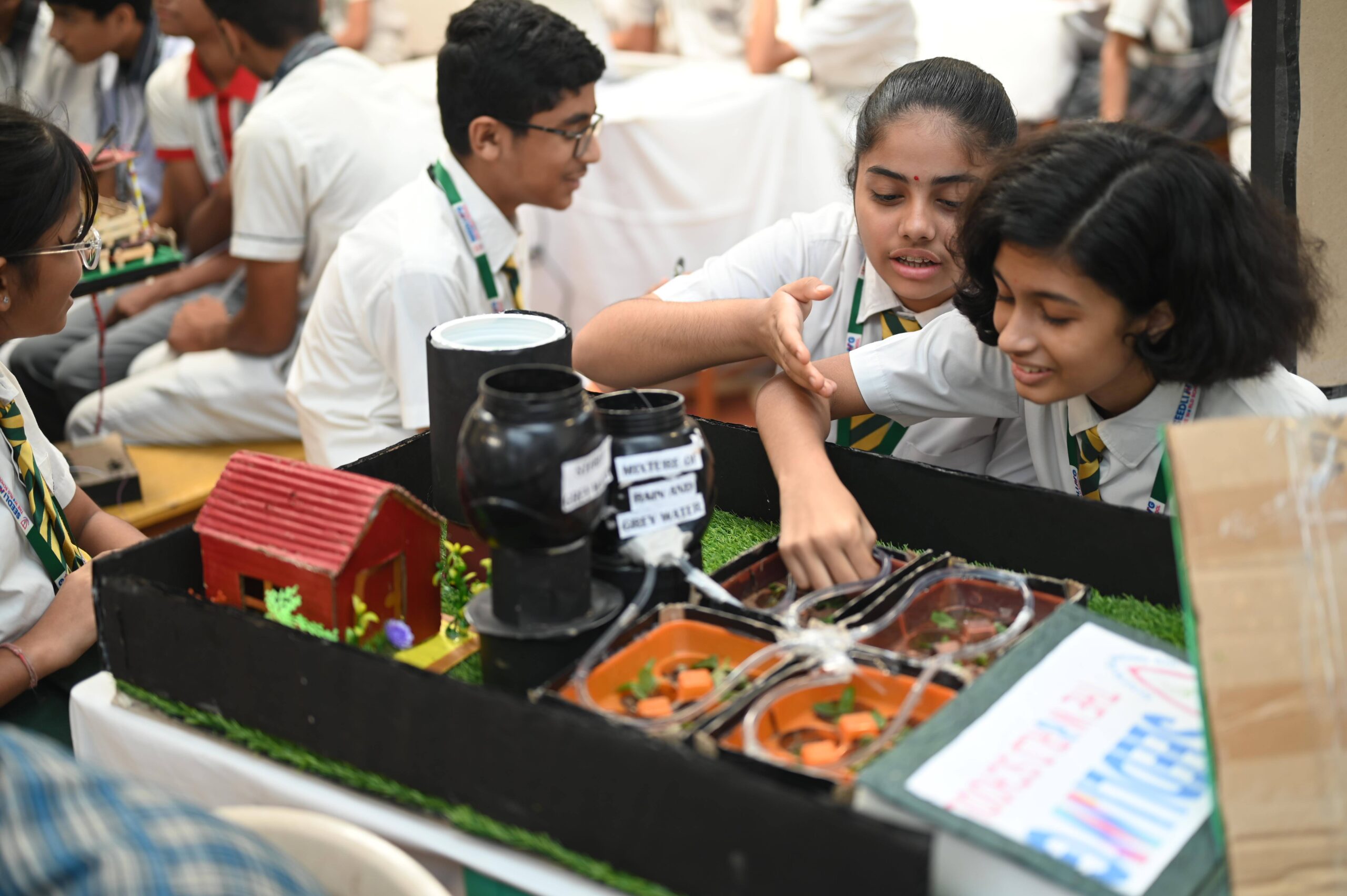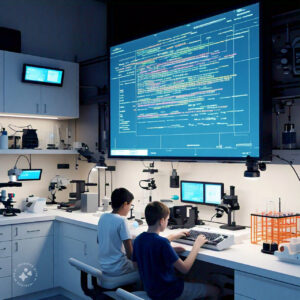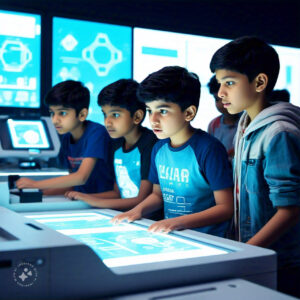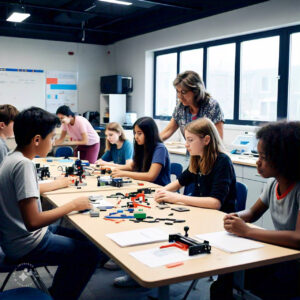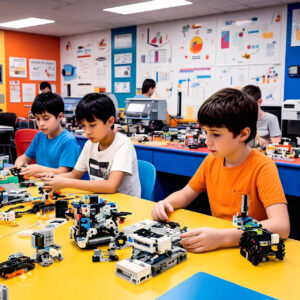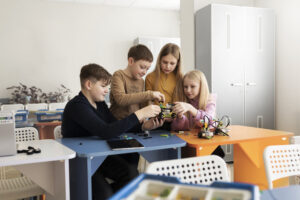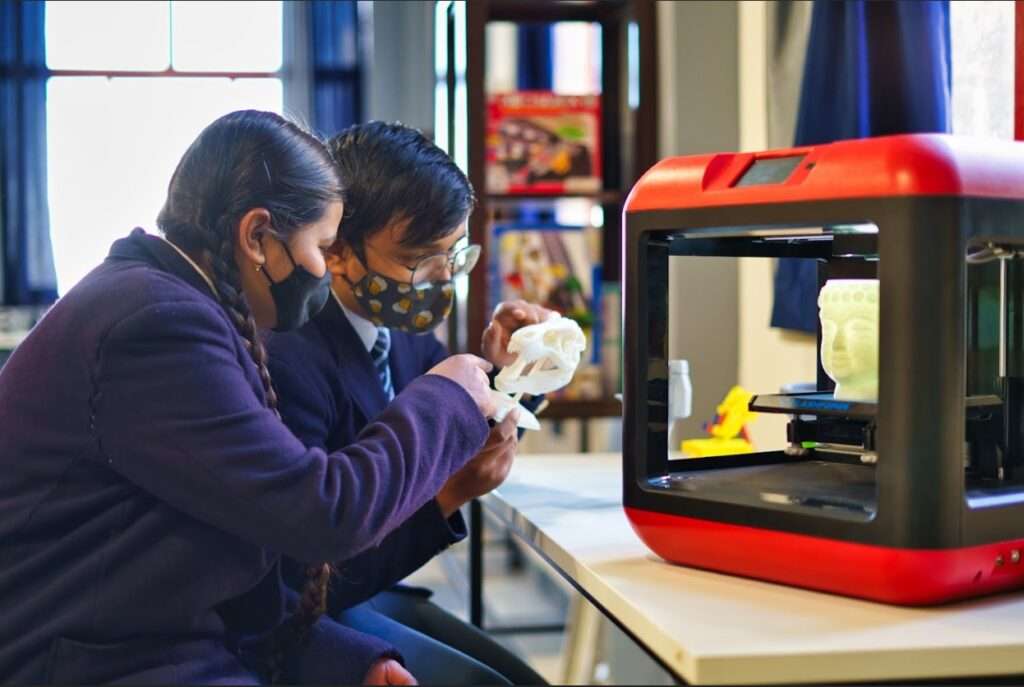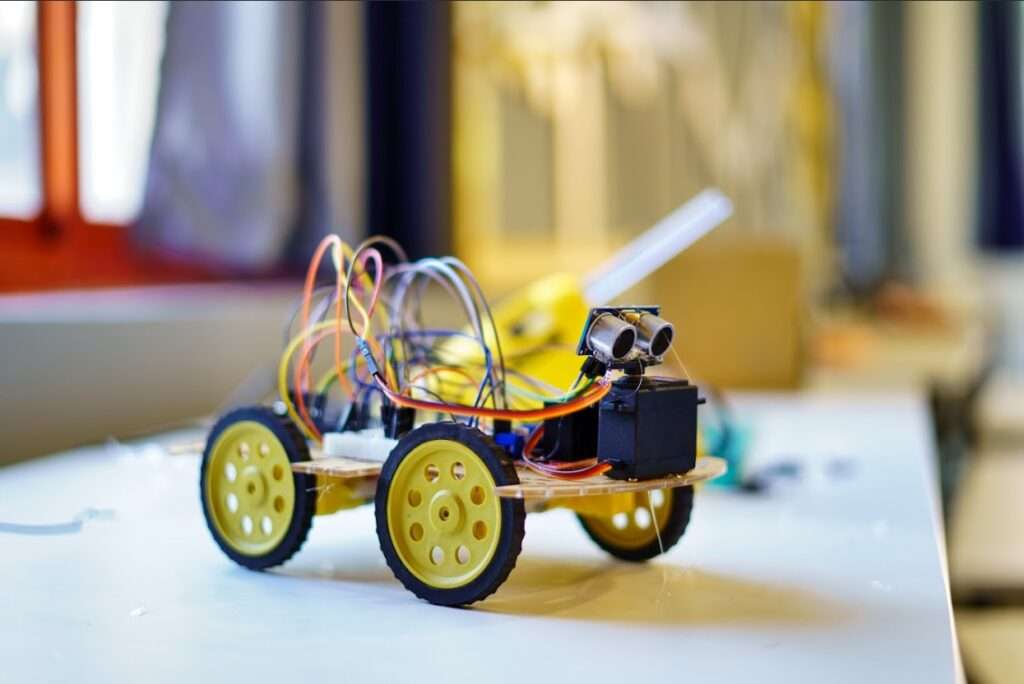In today’s classrooms, collaboration is a critical skill that prepares students for real-world challenges. STEAM (Science, Technology, Engineering, Arts, and Mathematics) labs provide the perfect environment to encourage teamwork, creativity, and innovation. Here are some engaging STEAM activities that foster collaboration among students.
1. Group Robotics Challenges
Why It Works:
Building and programming a robot requires multiple skills, such as coding, designing, and testing. Assign students different roles, such as a coder, designer, or tester, to ensure they work together toward a common goal.
Example Activity:
Have students design a robot that can navigate an obstacle course. Collaboration is key as they troubleshoot and iterate their design. Explore now
2. Collaborative Art-Engineering Projects
Why It Works:
Combining arts and engineering taps into both creative and analytical thinking. This activity encourages students to share ideas and develop solutions together.
Example Activity:
Ask students to create a kinetic sculpture using gears and levers. Each team member can contribute by brainstorming design ideas, assembling parts, or adding artistic touches.
3. Coding and Game Design in Pairs
Why It Works:
Pair programming is a proven method for building communication and collaboration. Students alternate between being the “driver” (coding) and the “navigator” (reviewing).
Example Activity:
Challenge students to create a simple educational game using block-based coding platforms like Scratch. Collaboration helps in brainstorming and refining the game’s logic.
4. Problem-Solving with STEM Escape Rooms
Why It Works:
Escape rooms incorporate puzzles that demand teamwork. Students must divide tasks and combine their skills to solve challenges under time constraints.
Example Activity:
Design an escape room where students solve math puzzles, decode scientific clues, or build simple machines to “escape.”
5. Renewable Energy Design Competitions
Why It Works:
Tasks like building a solar-powered car or wind turbine encourage students to brainstorm, divide tasks, and experiment together.
Example Activity:
Divide students into teams and provide them with materials to create a model of a wind-powered generator. They must work together to optimize its efficiency.
6. Data-Driven Experiments in Science Labs
Why It Works:
Hands-on experiments that involve collecting and analyzing data encourage students to collaborate at every step, from planning to presenting findings.
Example Activity:
Ask students to measure and compare the growth of plants under different light conditions. Teams must share observations and compile results into a cohesive presentation.
Tips for Effective Collaboration in STEAM Labs
Define Roles Clearly: Assign specific roles to each student to ensure active participation.
Encourage Open Communication: Foster an environment where students feel comfortable sharing ideas and asking questions.
Celebrate Team Successes: Acknowledge collective achievements to reinforce the value of teamwork.
Bring collaboration to life in your classroom today!
By incorporating these STEAM lab activities, educators can help students develop critical teamwork and problem-solving skills. These engaging, hands-on experiences prepare them for success in school and beyond.
Ready to inspire your students with collaborative STEAM activities? Start today and watch teamwork thrive in your classroom!

